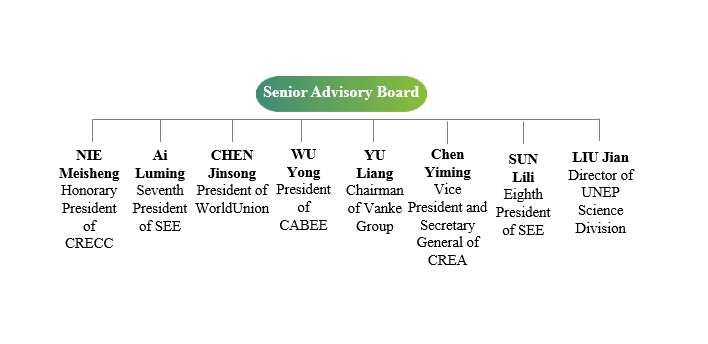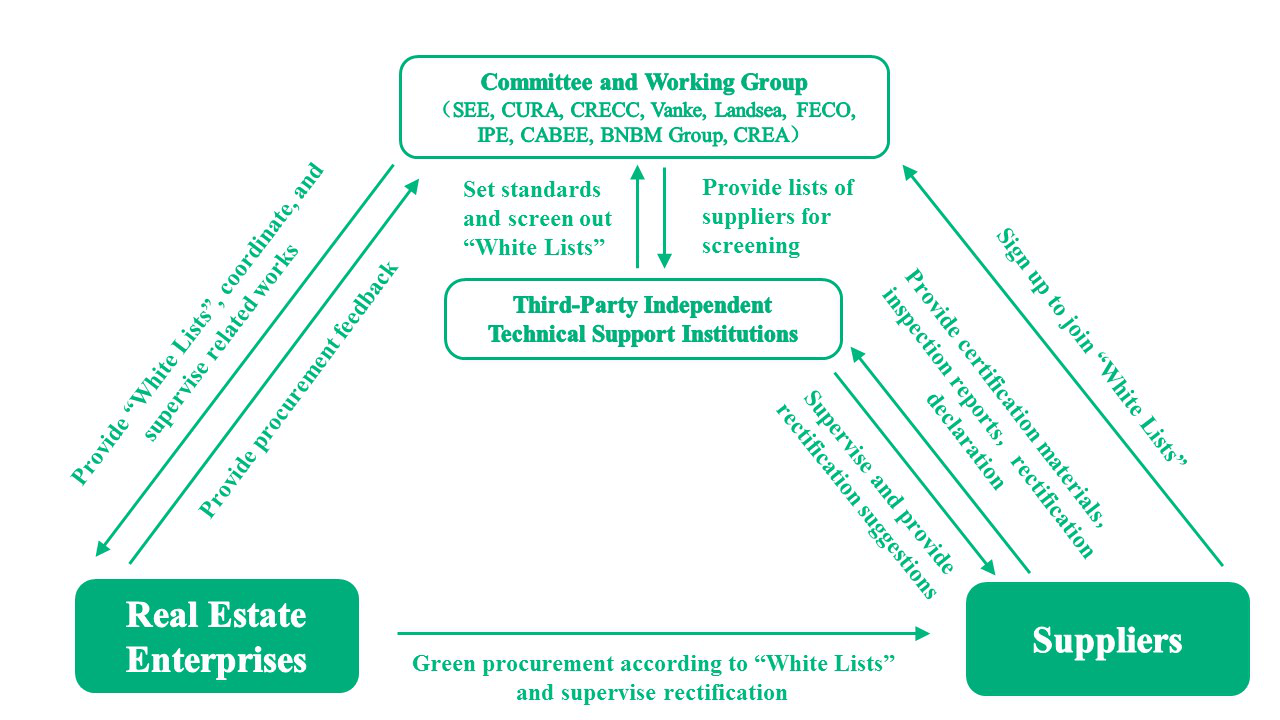

Organization Structure
The decision-making body of the GSC Action consists of nine institutions: SEE, CURA, CRECC, FECO, IPE, Vanke Group, Landsea Group, BNBM Group, CABEE, and CREA. The Promotion Committee members are as follow.

2.Senior Advisory Board:
Senior consultants include a total of 8 members. The Senior Advisory Board's responsibilities include guiding the GSC Action work, developing long-term working plans, and providing constructive comments on significant decisions. Members of the Senior Advisory Board are as follow.

The Secretariat is located in SEE Foundation and acts as the executive agency of the Green Supply Chain Action (GSC Action). The Committee Secretariat's responsibilities include approval, circulation, collation, and file of the GSC Action documents; organizing and preparing meetings and major events; planning of media publicity and reporting for GSC operations; registration, data review, and liaison work for newly-joint real estate companies; creating information platforms and publishing policies and information in a timely manner.
The Working Group is the working organization of the GSC Action, and is composed of one to two representatives from SEE, CURA, CRECC, Vanke Group, Landsea Group, FECO, IPE, BNBM Group, CABEE, and CREA respectively. The Working Group is mainly responsible for researching industry trends and relevant national regulations; organizing environmental protection agencies, industry experts, and real estate companies to jointly research and draft green procurement plans and action guidelines, as well as submit them to the Committee for consideration; coordinate members to implement green procurement according to plans.
The committee and working group determine the overall development direction, make decisions, release official news, and coordinate the daily work and communication of/between different departments. For example, they submit the list of suppliers to third-party professional institutions for screening, release a White List of suppliers externally, supervise the implementation status of real estate enterprises, and urge suppliers to be environmentally compliant. Third-party professional support institutions collect and review the monitoring reports and environmental compliance reports submitted by suppliers, generate White Lists of suppliers based on green procurement standards, supervise the environmental improvement of suppliers, and provide technical support and scientific suggestions for environmental improvement. Based on the supplier White Lists, real estate enterprises conduct green procurement, urge suppliers to be environmentally compliant, and provide regular feedback on green procurement to the working group.
